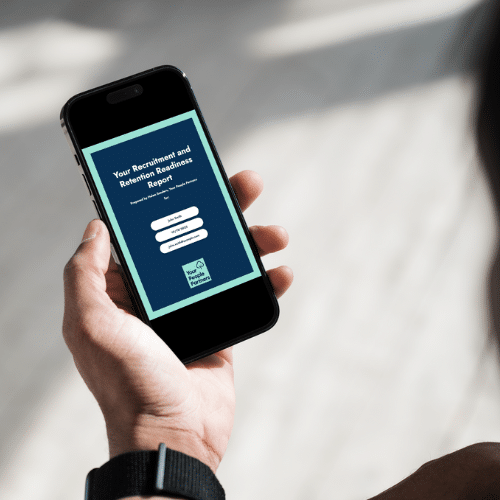Remote work has become an increasingly popular option for businesses worldwide. Regardless of the size of your company, adopting an efficient remote onboarding process for new hires is essential. This will ensure that they seamlessly integrate into your team and company culture, mainly when operating across marketing, sales, finance, operations, HR, and admin functions.
Your People Partners, a leading UK recruitment agency, is committed to helping you implement successful remote onboarding strategies that set your new employees up for success and enable your company to thrive in an ever-evolving business landscape.
In this blog post, we will discuss the importance of effective remote onboarding for small to medium-sized businesses and offer practical tips and methods to help employees settle into their new roles with ease, irrespective of their location.
Our goal is to empower your business with the knowledge and tools required to create a smooth, supportive, and engaging remote onboarding experience for your new employees. By embracing a well-executed remote onboarding process, your small to medium-sized business can benefit from improved employee engagement, job satisfaction, and long-term retention, ultimately building a high-performing team that drives growth and success.
Join us as we delve into the world of remote onboarding, providing you with actionable insights and techniques to help you build a strong, well-connected, and results-driven team in a distributed work environment.
Part 1: Developing a Comprehensive Remote Onboarding Plan
Creating a well-structured remote onboarding plan is the first step towards ensuring a seamless transition for your new hires. Consider the following when crafting your plan:
- Preparing resources: Compile essential resources such as an employee handbook, company policies, and role-specific materials to streamline the information-sharing process.
- Developing a task schedule: Outline key tasks, milestones, and expectations for the initial weeks to help new employees set priorities and understand their responsibilities.
- Assigning a buddy or mentor: Pair your new hire with a more experienced colleague who can offer guidance and support, fostering a sense of camaraderie and accountability.
- Implementing virtual check-ins: Schedule regular virtual meetings with the new employee to address queries, provide feedback, and ensure they are settling in well.
Part 2: Facilitating Effective Communication and Collaboration
Open communication and collaboration are vital for fostering a sense of belonging among remote employees. Implement the following strategies to boost teamwork:
- Establishing communication channels: Utilise communication tools like instant messaging, such as Google Chat. Make full use of video conferencing such as Google Meet or Teams, and team collaboration platforms. These will maintain open dialogue and encourage interaction.
- Organising virtual team-building activities: Facilitate online team-building events and social activities, ensuring remote employees feel included and connected to their colleagues.
- Encouraging cross-functional collaboration: Promote collaboration and information-sharing. Involve remote employees in cross-functional projects and discussions, sparking innovation and holistic problem-solving. Do so as much as you do your in-office staff.
- Clarifying communication etiquette: Establish and share communication guidelines such as response-time expectations and preferred channels for different types of correspondence, fostering a consistent and respectful communication culture.
Part 3: Offering Consistent Training and Learning Opportunities
Providing remote employees with ongoing learning and development opportunities is crucial for their professional growth and job satisfaction. Ensure access to:
- Interactive training materials: Develop or source engaging e-learning resources, webinars, and virtual workshops catering to different learning preferences and covering topics relevant to your employees’ roles.
- Online knowledge-sharing platforms: Encourage the sharing of expertise and insights through online forums, intranet collaboration spaces, and shared document libraries, promoting a culture of continuous learning.
- Personal development initiatives: Support employee growth with personalised development plans, access to relevant courses, and opportunities for skills enhancement through internal or external projects.
- Virtual feedback and coaching sessions: Schedule regular virtual coaching and feedback sessions with remote employees. These can aim to help them better identify areas of improvement and build on their strengths.
Part 4: Monitoring Progress and Gathering Feedback
Continuously evaluating your remote onboarding process and gathering feedback helps refine your approach, ensuring ongoing success. Implement these steps:
- Establishing success metrics: Identify measurable indicators of success such as task completion, employee satisfaction, performance evaluations, and manager feedback to evaluate your remote onboarding progress objectively.
- Check-in, check-in, check-in: Hold regular check-ins with your new hires during the onboarding phase. Do this to track their progress, address any concerns, and provide timely support and guidance.
- Collecting feedback through surveys: Conduct anonymous online surveys to solicit feedback from new hires on their onboarding experience and use the insights to improve your process.
- Iterating and evolving your approach: Regularly review your remote onboarding process. Make adjustments based on feedback, industry best practices, and your business’s unique requirements.
Reaping the Benefits of Effective Remote Onboarding for SMEs
An impactful remote onboarding process is crucial for small to medium-sized businesses to ensure the successful integration and engagement of new employees in today’s evolving work landscape.
By investing in a comprehensive onboarding plan, facilitating open communication and collaboration, offering consistent training opportunities, and continuously monitoring progress and feedback, your company can create a supportive remote work environment that encourages long-term employee satisfaction, retention, and success.
Your People Partners is dedicated to helping you unlock the potential of remote onboarding, offering expert advice and innovative recruitment solutions to meet your unique needs. Trust in our experienced team to guide you through the intricacies of remote onboarding, ensuring your new hires start their journey with your company on the right foot, ultimately leading to a high-performing and results-driven team!









